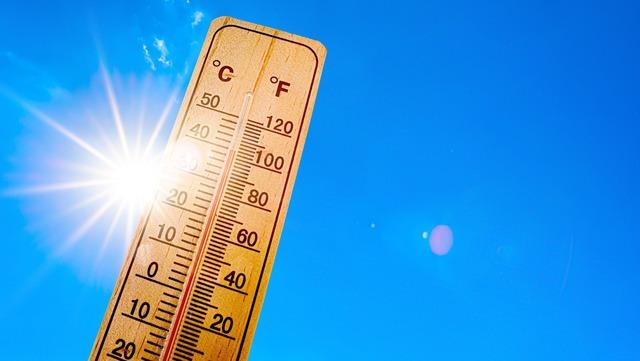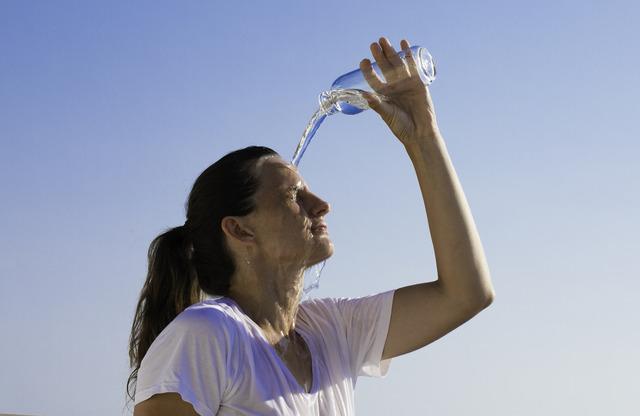Internal Medicine Specialist Dr. Salih Demir listed the first symptoms of dehydration, which leads to fainting and loss of consciousness at advanced levels, as “excessive thirst, dry mouth and throat, fatigue and weakness, decreased urine output and dark urine.” He noted that noticing the symptoms early will prevent serious health problems.
He said that the increasing temperatures we are in these days cause our bodies to lose too much water, leading to a state of “dehydration”. Stating that dehydration occurs when the body takes in less fluid than it needs or loses too much fluid, Dr. Demir explained that this situation is seen more frequently, especially in the summer months, with increasing temperatures; that insufficient fluid intake, excessive sweating, diarrhea, vomiting can also cause dehydration; and that some diseases such as fever and diabetes can also increase fluid loss.
“IF FLUID LOSS INCREASES, IT MAY CAUSE FAINTNESS AND LOSS OF CONSCIOUSNESS”

Emphasizing that it is necessary to recognize the early signs of dehydration in order to prevent serious health problems, Dr. Demir said, “The severity of these symptoms varies according to the amount of fluid loss. Early symptoms are excessive thirst, dry mouth and throat, fatigue and weakness, decreased urine volume and dark urine. Urine taking on a dark yellow or amber color indicates that the body is losing water. Moderate symptoms of inadequate fluid intake are dizziness and headache, and muscle cramps that occur especially when exercising due to increased water loss. Decreased elasticity and dryness of the skin may be observed due to prolonged dehydration. There may be an increase in heart rate depending on the body’s responses while trying to maintain fluid balance.”

Dr. Demir stated that in advanced dehydration, there is a decrease in blood pressure due to a lack of fluid in the body, insufficient blood flow to the brain and kidneys, confusion and fainting, increased respiratory rate and cessation of urine output.
“BABIES, CHILDREN AND ELDERLY PEOPLE ARE MORE SENSITIVE”

Noting that fluid loss does not affect every individual to the same extent, Dr. Demir said that certain age groups and patients are more sensitive to fluid loss; especially babies, children and the elderly have difficulty maintaining body fluid balance. Pointing out that conditions such as diabetes and kidney disease increase fluid loss in those with chronic diseases, Dr. Demir said, “High blood sugar levels cause excessive water loss from the kidneys. Patients who use diuretics are at high risk of dehydration if they are not careful. Since it will be even more difficult to maintain fluid balance in patients with heart failure, both excess fluid and inadequate fluid intake problems may be observed. In patients with kidney failure, kidney function may deteriorate depending on the level of dehydration.”

Dr. Demir emphasized that drinking enough water throughout the day helps the body maintain its water balance to protect against dehydration, and suggested consuming mineral water to balance this, as the loss of minerals in the body will also increase in cases of diarrhea or vomiting. Dr. Demir stated that water intake can be increased by consuming fruits and vegetables with high water content, and said, “Spending time in cool and shaded places, especially during the hottest hours of the day, and wearing light, breathable and light-colored clothing will help regulate our body temperature. Alcohol and caffeine consumption should be reduced as they can cause your body to lose more water.”
“NOTIFICING THE SYMPTOMS EARLY PREVENTS SERIOUS PROBLEMS”

Emphasizing that preventing dehydration in the summer months is of critical importance to maintaining health, Dr. Demir said that the risk of dehydration can be reduced by paying attention to water consumption, wearing appropriate clothing and spending time in cool places. Stating that maintaining the body’s water balance is of great importance for a healthy life, Dr. Demir stated the following: “Noticing the signs of dehydration early and taking the necessary precautions will help prevent serious health problems. Individuals with chronic diseases should be careful against dehydration, especially in the summer months, and take the necessary precautions.” (İHA)
